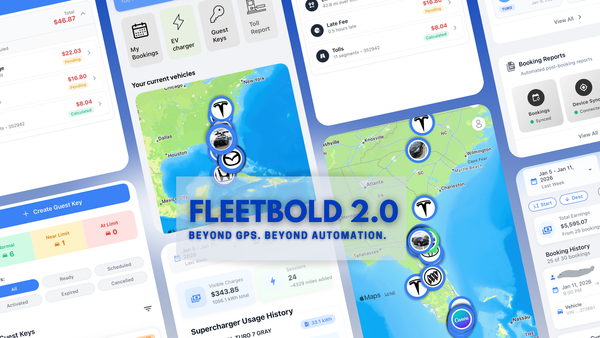How Much Money Can I Make on Turo?
Curious about how much money you can really make on Turo? This guide breaks down potential profits, expenses, and smart strategies to maximize your earnings as a host.

One of the first questions new hosts ask is: how much money can I make on Turo? The truth is, earnings vary widely but with the right vehicle, market, and strategy, Turo can turn into a strong income stream or even a full business.
Let’s break down what determines your profit potential.
What Determines Turo Earnings?
Earnings depend on a mix of factors. Here are the most important ones:
Vehicle Type
- Economy cars: Affordable and book often, generating steady but modest profits.
- SUVs and mid-range cars: Higher daily rates, popular for families and travelers.
- Luxury cars and EVs (like Tesla): Can make 3–8x more per trip, but come with higher risks and costs.
Location
Demand differs by city. A car in Miami or Los Angeles can earn significantly more than the same car in a smaller town.
Pricing
Dynamic pricing (adjusting for weekends, events, and demand spikes) typically outperforms fixed rates.
Availability and Management
The more often your car is available and the faster you respond to bookings, the more visibility and income you’ll earn.
Average Turo Host Earnings
According to Turo’s data and reports from experienced hosts:
| Vehicle Type | Daily Rate Range | Avg. Monthly Net Profit | Best Fit For |
|---|---|---|---|
| Economy Car | $25–$50/day | $300–$600 | Beginners, budget travelers |
| SUV / Mid-Range | $50–$100/day | $700–$1,200 | Families, long trips |
| Luxury / EV | $150–$400/day | $2,000–$5,000+ | Premium markets, experienced hosts |
Most hosts fall within a 30–60% profit margin after expenses like insurance, maintenance, and cleaning.
Expenses That Cut Into Profit
When asking how much money can I make on Turo, it’s important to factor in costs:
- Insurance (Turo plan or commercial policy)
- Vehicle depreciation
- Cleaning and detailing
- Repairs and maintenance
- Parking/storage fees
- Gas or charging (if not billed to the guest)
These costs can significantly reduce your take-home income if not managed carefully.
Should You Start with Economy or Luxury?
- Economy cars: Safer entry, lower cost, but limited upside.
- Luxury/EVs: High earning potential per trip, but more risk if damaged.
Many successful hosts recommend starting with a practical car to learn the business, then scaling into higher-value vehicles once you understand your market.
Tips to Maximize Profit on Turo
- Take high-quality photos of your car.
- Offer delivery to airports or busy city spots.
- Keep vehicles spotless and well-maintained.
- Automate management with fleet tools (like alerts for mileage, late returns, or charging).
- Focus on reviews they directly impact bookings.
Conclusion
So, how much money can I make on Turo? The answer depends on your vehicle type, location, and how well you manage expenses. Economy cars can net a few hundred per month, while luxury cars can earn thousands but every host needs a smart strategy.
If you’re thinking about adding a Tesla to your fleet, check out our next guide: Top 7 Mistakes Tesla Turo Hosts Make (and How to Avoid Them). It highlights costly pitfalls and shows how to protect your profits.
FAQs About Turo Earnings
1. Is Turo worth it to make money?
Yes, many hosts find Turo profitable but success depends on your location, vehicle type, and how well you manage costs. It’s not passive income; it requires effort.
2. How much do Turo hosts make per month?
On average, economy cars net $300–$600/month, SUVs $700–$1,200/month, and luxury/EVs $2,000–$5,000+/month after expenses.
3. Can Turo be a full-time income?
Yes, but usually only if you manage multiple vehicles. Many power hosts build fleets of 5–20 cars and treat it like a business.
4. Do Teslas make more money on Turo?
Yes, Teslas and other luxury EVs usually earn higher daily rates, but they also come with higher risks and repair costs.
5. What’s the biggest mistake new Turo hosts make?
Underestimating expenses. Cleaning, insurance, and unexpected repairs can eat into profit if you don’t plan ahead.






